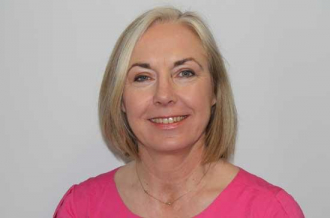Why hair salons and barbers are socially relevant
Toggle
Why hair salons and barbers are socially relevant
The absence of professional hair care is deeply felt by many as they struggle to hold on to the last vestiges of their dignity, writes Prof Mary Corcoran, Department of Sociology
March 2021 brought a new crisis to our household. My husband has what would traditionally be called "a fine head of hair." But as each week has passed, the growth remained unchecked and the hair became more and more unmanageable. In desperation, he went online and ordered some hair products (mainly hairbands for men) from a sympathetic start-up in California. The Long Hairs, which styles itself as a global fraternity for men with long hair, is capitalising on the new opportunities thrown up by the absence of hair salons and barber shops in Covid times.
For a significant number of us, the closure of hair salons and barber shops for most of 2020 and now 2021 represents one of the most irritating impacts of Covid-19. Deemed a non-essential service, the absence of professional hair care is deeply felt as we struggle to hold on to the last vestiges of our dignity.
In the real world, access to professional-style grooming is perceived by many as an essential service. We have all seen the countless memes posted across social media in the last year poking fun at the implications of having to forego the trimming, cutting, highlighting, styling, crimping or colouring of our hair.
But it's no laughing matter. Germany's 80,000 hair salons were allowed to re-open on March 1st, despite stalled figures for infections and a slow vaccination roll out. Some politicians couched the decision to open in terms of "human dignity", while others focused on "personal hygiene." The Central Association of the German Hairdressing Trade successfully lobbied for a re-opening on the basis that "the profession has social relevance."
Hair matters. When making choices about how to curate our hair, we are curating a core part of our identity. Our presentation of self, whether on Zoom or face to face, is primarily through the medium of our face and our hair. Hair is symbolic because it conveys values and meanings to the self and to others.
Taking proper care of the hair is fundamental to maintaining a robust sense of self-worth and personal style. Getting our signature 'look' right is an essential part of our personal armoury as we go into battle each day. Good hair is a crucial aspect of well-being: everyone knows exactly what people mean when they say they are "having a bad hair day."
The hairdressing industry is an essential (if traditionally overlooked) sector in Irish society that is expanding to include a range of ancillary services, and increasingly targeting men as well as women. A 2020 report commissioned by the Hair and Beauty Industry Confederation Ireland notes that there are almost 10,000 hair and beauty salons in the country with a strong regional profile. Salons are often the anchor tenants on high streets and in shopping centres and are important drivers of footfall. The workforce is overwhelmingly female in a business with an estimated turnover of €2.6bn in 2019.
Anecdotally we know that some hairdressers and barbers here (just as their counterparts in Germany) have gone underground to provide services to grateful clients, even though the industry is officially shuttered. However, a clandestine appointment with a rogue hairdresser or barber will not come even close to replicating the much longed for visit to the salon.
In Americanah, a 2013 novel by Chimamanda Ngozi Adichie, hair is a central character in the narrative. Many of the key scenes exploring issues of identity and belonging take place in a hair salon. Hair salons and barber shops constitute much more than an industry. They are indeed socially relevant places that we seek out for company and conversation. They fit into what sociologist Ray Oldenburg has described as 'third places', neutral places that are neither home (first place) nor workplace (second place), but convivial havens in which attendees can feel relaxed and at ease.
Research in the United States notes that barbershops have been traditionally places where men spend time with other men, forming close relationships with one another in the absence of women. Indeed, patrons are known to stop by daily to simply chat with their barbers, discuss the news or play chess. A real sense of community and vitality can be generated in such places, and that crucially contributes to our sense of health and well-being.
Like public bars and rural post offices, hair salons are "anchor" services that provide us with opportunities to informally engage with others. Relationships in these setting are primarily based on trust. Customers speak freely in the presence of a listening ear and, like a bartender, the hairdresser is part-confidante, part-confessor and part-psychologist. Screen life simply cannot replicate the sheer sensory pleasure of sitting in a salon having your hair expertly tended by a professional, while sipping a coffee, discussing the issues of the day and spilling the beans on friends and foes alike.
Oldenberg was concerned that the third places he wrote about - cafés, coffee shops, bookstores, bars, hair salons and other hangouts - were threatened by the advance of non-places, where individuals relate to one another in purely utilitarian terms (as shoppers, clients, patients etc). The pandemic has taught us a salutary lesson in this regard and we recognise much more clearly all those practices that are truly "socially relevant." As we sit tethered to our computer screens in homes that have also become workplaces and confined within a 5km cordon sanitaire, what we wish for most of all is to go back to our third places.
